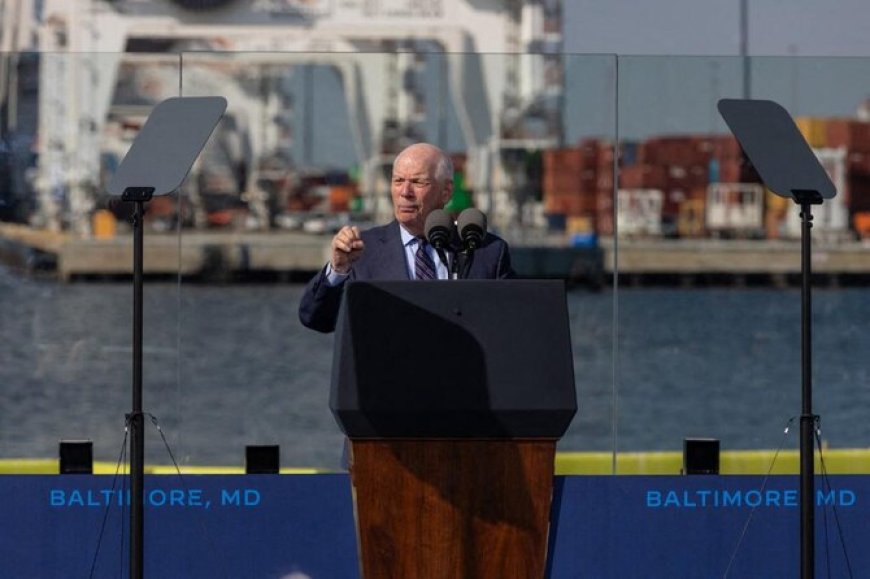As Senator Ben Cardin (D-MD) prepares to retire from Congress after nearly 60 years in public service, his final remarks as chairman of the US Senate Foreign Relations Committee reflect deep concern over the future of human rights under President-elect Donald Trump’s second term. Cardin, a lifelong advocate for human rights, fears that protecting global rights could take a backseat to Trump’s desire for swift diplomatic victories, especially when it comes to engaging with autocratic regimes or negotiating with Russia.
“I don’t want to prejudge, but I am very concerned that protecting human rights may not be as important as other objectives he’s trying to get done,” Cardin told Reuters in a recent interview, expressing his unease about Trump’s foreign policy priorities once he returns to the White House. With Trump’s re-election campaign focusing heavily on “making deals” and ending the war in Ukraine, Cardin cautioned that this mindset could undermine America’s commitment to its values, particularly when dealing with authoritarian leaders.
Cardin is widely respected for his advocacy on human rights, most notably for his role in co-authoring the Global Magnitsky Act. This landmark legislation, originally aimed at punishing Russian human rights violators, was expanded in 2016 to hold accountable individuals worldwide responsible for gross human rights abuses and corruption. During his first presidency, Trump used the Magnitsky Act to impose sanctions, and Cardin praised those efforts, even as he worried about the future under a second Trump term. The act has become a cornerstone of US policy, with over 30 countries now utilizing it to combat corruption and human rights violations globally.
Despite Trump’s occasional use of Magnitsky sanctions, Cardin expressed concern that Trump’s broader approach to foreign policy may prioritize short-term deals over long-term values. The senator specifically highlighted Trump’s troubling admiration for autocratic leaders like Russian President Vladimir Putin and Hungarian Prime Minister Viktor Orban, and his stance on the United Nations Human Rights Council, from which the United States withdrew under Trump’s first term.
Cardin also warned that Trump’s eagerness to negotiate a swift resolution to the Russia-Ukraine conflict, without detailing his strategy, could result in compromises that undermine the US’s support for democracy and human rights. “I want to make sure that we don’t try to get an immediate deal that doesn’t represent our values,” Cardin said, emphasizing that foreign policy should not come at the expense of human rights.
As the Senate prepares to shift control to a Republican majority in January, Cardin expressed hope that lawmakers could serve as a check on Trump’s policies, particularly regarding foreign aid and human rights protections. In his first term, Trump proposed significant cuts to foreign aid, though this plan was thwarted by bipartisan opposition in Congress. Moving forward, Cardin believes the Senate will play a critical role in balancing Trump’s foreign policy approach, especially in areas like the Middle East, where Trump’s policies—especially his stance on Israel and the Palestinians—remain contentious.
While Cardin acknowledged the challenges of Middle East peace in the face of ongoing conflicts, including the war in Gaza, he pointed to recent developments, such as shifts in Syria and US-led efforts to isolate Iran, as potential areas for hope. Still, he warned that Trump’s second term could complicate progress toward a two-state solution for Israel and Palestine, as well as broader regional stability.
Looking ahead, Cardin remains confident in the enduring strength of the Global Magnitsky Act, asserting that its expansion into a global sanctions regime is one of his lasting legacies. “It really puts the fear in the hearts of oligarchs. They don’t want to get on these lists,” he said. As more countries adopt the framework, Cardin is assured that the fight for human rights will continue, even as his own time in Congress draws to a close.
Cardin’s concerns over Trump’s second term underscore a broader worry about the erosion of human rights priorities in US foreign policy. As Trump prepares to re-enter the White House, the fate of human rights will likely hang in the balance, with lawmakers like Cardin serving as the last line of defense against policies that could weaken the US’s global standing as a champion of democracy and human dignity.














































